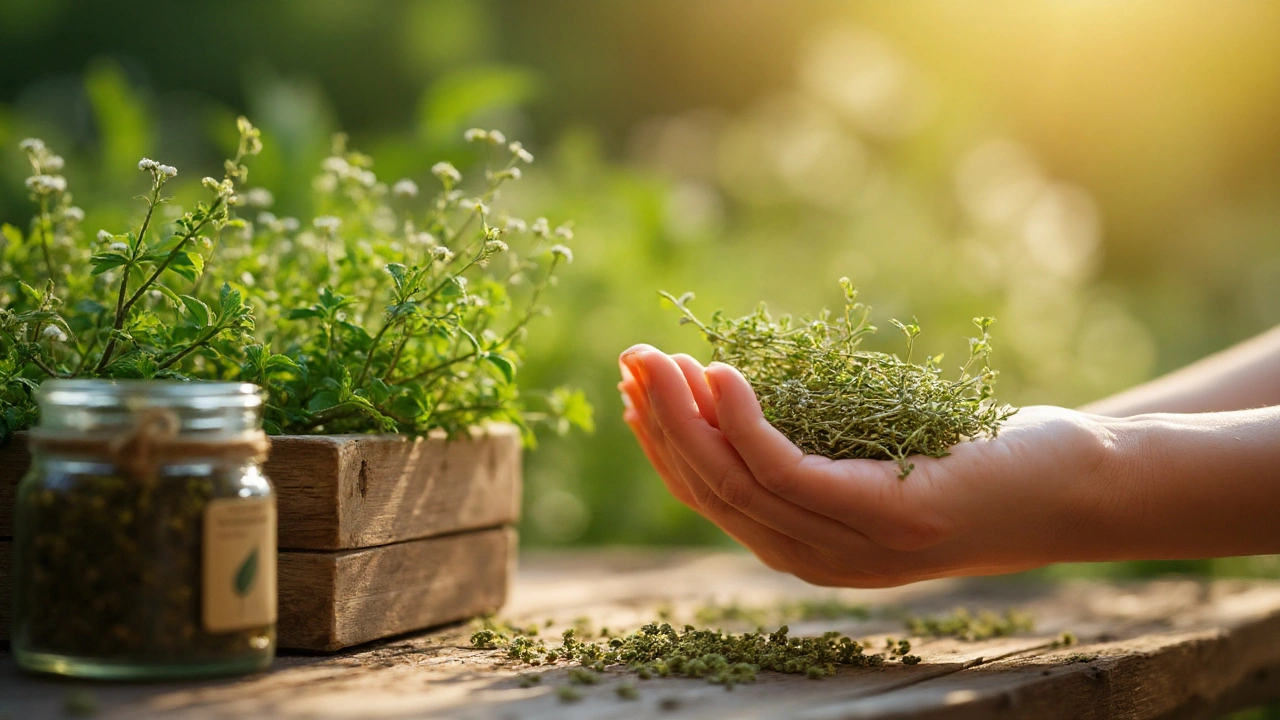Hedge‑Hyssop Supplement: Quick Facts and How to Use It
If you’ve seen hedge‑hyssop in a health store and wonder what it actually does, you’re not alone. This herb has been used for centuries in folk medicine, and today it shows up in capsules, teas, and tinctures marketed for everything from immune support to calm nerves. Below is a no‑nonsense rundown of what the supplement offers, how to take it safely, and what to watch out for.
What Hedge‑Hyssop Is and Why People Take It
Hedge‑hyssop (Verbena officinalis) is a small, gray‑green plant that grows in fields and along roadsides. The leaves and stems contain flavonoids, phenolic acids, and volatile oils that give it mild antioxidant and anti‑inflammatory properties. People usually turn to the supplement when they want a gentle boost for:
- Seasonal immune challenges – it may help the body respond to minor infections.
- Stress‑related tension – a calming effect without strong sedation.
- Digestive discomfort – occasional bloating or mild stomach cramps.
Science on hedge‑hyssop is still emerging, but small studies on related verbena species suggest modest reductions in oxidative stress markers. That’s enough for many users to give it a try, especially when they prefer plant‑based options over synthetic vitamins.
Practical Tips for Taking the Supplement
When you buy hedge‑hyssop, you’ll see it in three common formats: capsules (usually 300‑500 mg), powdered tea bags, and liquid tincture drops. Here’s how to pick the right one and use it effectively:
- Start low. Begin with the smallest dose listed on the label – often one capsule or a quarter‑teaspoon of powder. This lets you see how your body reacts.
- Take with food. A light snack can improve absorption of the plant’s active compounds and reduce any mild stomach upset.
- Stay consistent. For immune or stress benefits, most users notice a change after 2‑3 weeks of daily use. Skip days only if you feel any irritations.
- Watch the tincture. If you choose drops, 5‑10 drops diluted in water or juice is typical. Tinctures act faster, so you may need less overall.
Don’t exceed the manufacturer’s maximum dose. Overdoing any herbal supplement can lead to headaches, dizziness, or an upset stomach.
Safety note: Hedge‑hyssop may interact with blood thinners (like warfarin) because of its mild blood‑thinning effect. If you’re on any anticoagulant, talk to your doctor before adding the supplement.
Pregnant or nursing people should avoid high doses, as there isn’t enough reliable data on safety during those periods. A tiny amount (like a single tea bag) is likely okay, but it’s best to ask a healthcare professional.
If you’ve got a thyroid condition, be cautious. Some herbals can affect hormone levels, and a few case reports link high verbena intake to altered thyroid function. Again, a quick check with your doctor can keep things safe.
When you’re ready to buy, look for products that list the plant’s Latin name (Verbena officinalis) and disclose the extraction method. Certified organic or third‑party tested brands lower the risk of contaminants like heavy metals.
Finally, pair the supplement with lifestyle habits that support its goals. Regular sleep, balanced meals, and moderate exercise amplify the calm and immune benefits you’re after.
In short, hedge‑hyssop can be a useful, low‑risk addition to a wellness routine if you start low, keep an eye on interactions, and choose quality products. Give it a try for a few weeks and see if you feel a subtle lift in energy or a smoother mood. If nothing changes, you can safely stop – the herb isn’t a high‑stakes medication, just a gentle plant ally.

Unlock Hedge‑Hyssop: Your Complete Guide to the Must‑Have Supplement
Aug 24, 2025 / 15 Comments
Discover what hedge‑hyssop is, its key health benefits, dosage guidelines, safety tips, and how to pick a quality supplement in this comprehensive guide.
READ MORERECENT POSTS
- Flutamide (Eulexin) vs Other Antiandrogens: A Comparison Guide
- DOAC Interactions with Other Medications: What You Need to Know
- Pollen Forecasting: Plan Outdoor Activities Around Peak Allergen Days
- TENS Therapy for Pain Relief: How Transcutaneous Electrical Nerve Stimulation Works and When It Helps
- Radiation Therapy: How Radiation Destroys Cancer Cells at the DNA Level